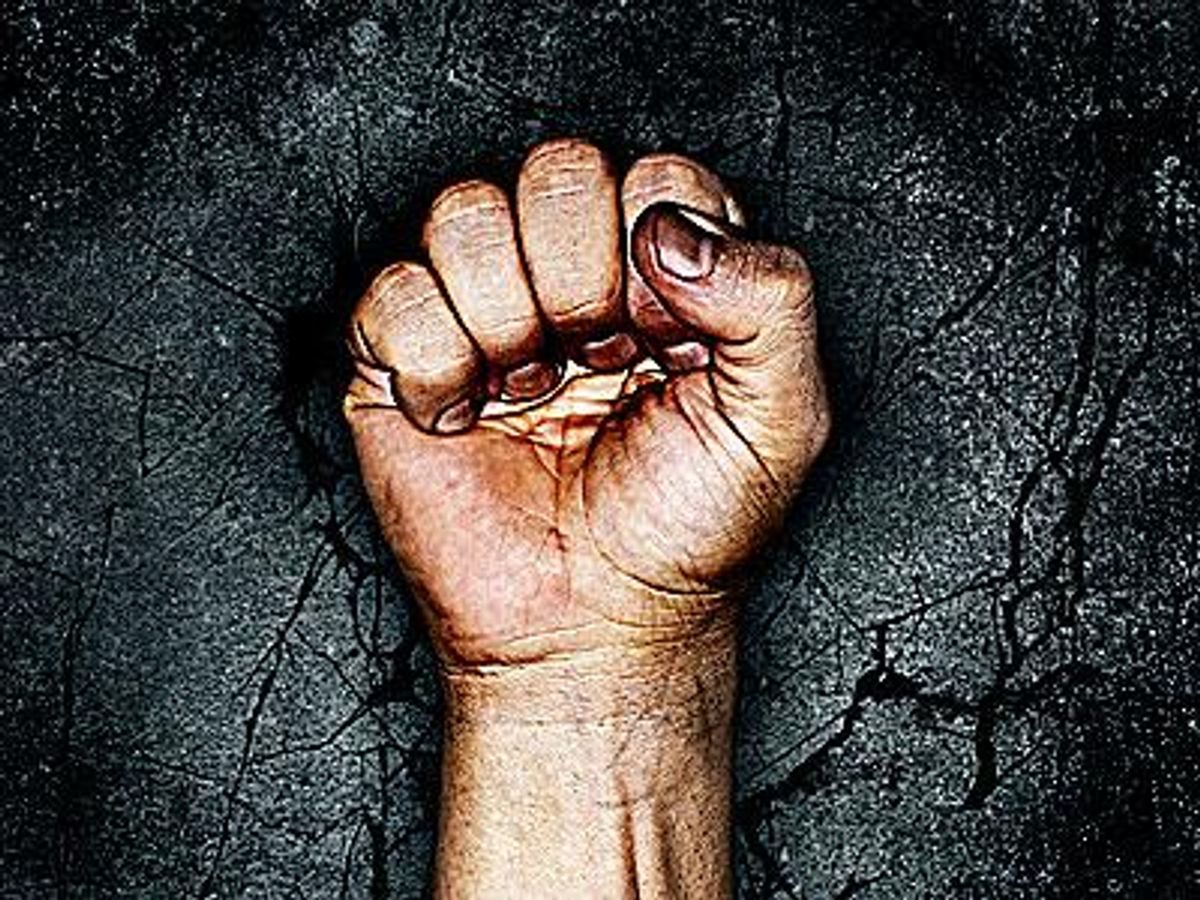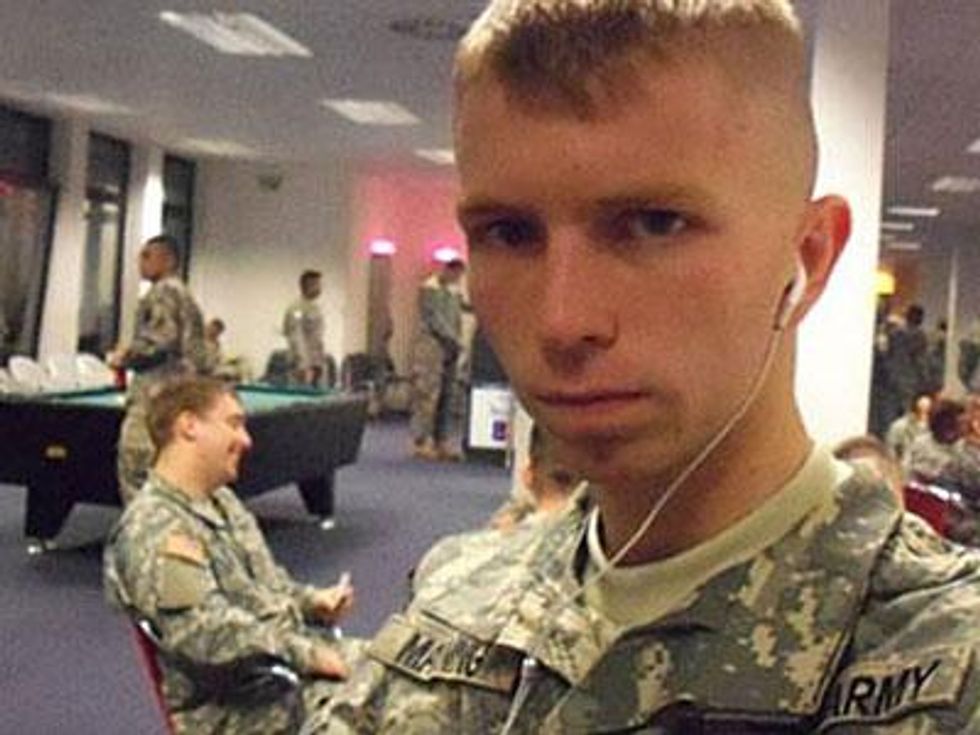Is dissent still allowed in America?
Events of the last few weeks say no, not really. President Obama has thrown down the gauntlet. Dissenters will be punished, and the Obama administration's war on whistle-blowers continues to escalate. Out gay soldier Bradley Manning is on trial for his life for leaking 750,000 secret documents to WikiLeaks and several of the world's top newspapers.
Another leaker revealed information to gay journalist Glenn Greenwald, which led to a massive story last week on how Obama's National Security Agency is spying on Americans, collecting metadata on anyone plugged into anything, from computers to phones to social media. It is being called the most important leak in U.S. history, eclipsing even the Manning leak.
This expose has been followed by an inference that Greenwald himself might be investigated - calls for Greenwald to be tried for treason are all over social media. Greenwald responded that the U.S. has a constitution and the First Amendment protects the press.
Sunday, the leaker who gave information to Greenwald's newspaper, The Guardian, as well as The Washington Post, revealed himself. Former CIA employee Edward Snowden, 29, said he has nothing to hide because he did nothing wrong. His rationale for leaking information on the NSA was not unlike Manning's. He said, "I don't want to live in a society that does these sort of things. ... I do not want to live in a world where everything I do and say is recorded. That is not something I am willing to support or live under."
However, just to be safe from the war on whistle-blowers, Snowden left Hawaii for Hong Kong.
Members of Congress, led by Sen. Dianne Fienstein, are calling for investigations and others, like House Majority Leader Eric Cantor, are calling for Snowden to be tried for treason.
The NSA spying leak and the Wikileaks case are all about dissent. These are huge cases. Greenwald has said he has more to reveal in the coming days.
Massive exposes like Manning's and Snowden's are not the only voices of dissent out there, however. On June 4, Ellen Sturtz, a member of the
LGBTQ civil rights organization GetEqual, was termed a "heckler" for raising questions to first lady Michelle Obama at a $10,000-per-person Washington fund-raiser for the Democratic Party.
Sturtz's actions were deemed "rude" by some and "racist" by others. (A notable number of columns on the matter made references to Sturtz and Obama's racial differences.)
 Left: Sturtz and Obama
Left: Sturtz and ObamaExcept Sturtz's was a civil rights action. Sturtz wasn't a heckler any more than Manning, Snowden, and Greenwald are traitors. Dissent is being erased from the national lexicon, with the help of a largely complacent mainstream media.
I've written extensively about the Manning case here and elsewhere. The show trial being put on by President Obama is a national embarrassment. Manning should be pardoned.
Monday, a petition to the White House was already in place demanding a pardon for Snowden. Any attempts at prosecuting Greenwald deserves contempt. And protest.
When I tweeted my disgust at the way Sturtz was being portrayed on the blogosphere in the hours after her exchange with the first lady, I got a firestorm of outrage in response. I responded to several dozen people -- all straight -- over several hours. All were "rude," all were "attacking." The very things they accused Sturtz of being. My explanations of the queer civil rights movement were dismissed. No one cared.
What happened at that D.C. fund-raiser may have been discomfiting, but it was not wrong. Like millions of American queers, Ellen Sturtz has had enough. She said of her actions, "I could no longer remain silent while standing in front of one of our country's most powerful political figures. I spoke up for the millions of LGBT Americans. Mrs. Obama has accomplished extraordinary things and is inarguably the conscience of the White House. She understands injustice at a deep level, and it was that political conscience I was hoping to stir at this week's fund-raiser."
The New York Times agreed with Sturtz in an editorial that was singularly ignored by everyone -- notably LGBTQ people who couldn't throw Sturtz under the bus fast enough, straight black women who took Sturtz's questioning of the first lady as racist, white liberals always ready to scapegoat queer activists for getting in the way of everything from health care reform to immigration reform, straight feminists who have been gutting lesbians since the early days of second wave feminism.
The
Timeswrote, after stipulating that Sturtz's action was not "polite" and that "Mrs. Obama did not handle it terribly well by threatening to take her marbles and go home," that the question Sturtz posed was absolutely spot on -- exactly what I had posted on Twitter.
Furthermore, the Times wrote, "Ellen Sturtz, a member of a gay-rights advocacy group, had an excellent question -- why hasn't President Obama signed an executive order banning discrimination among federal contractors on the basis of sexual orientation or gender identity?"
Editorial page editor Andrew Rosenthal went on to say, "It's not a new question. We asked it over a year ago on the editorial page. ... He has signed dozens of executive orders. So why not order this simple guarantee of non-discrimination among federal contractors?"
Why indeed? Sturtz was right. Was she rude? I heard the tape. I thought she was earnest. Mrs. Obama, who is known for being warm and responsive and who I personally admire, handled her "heckler" badly. The first lady had every opportunity to treat Sturtz and her question with respect. All she had to do was say, "I have no power over my husband's decisions, but I will pass your concerns on to him."
That's the kind of graciousness and compassion she's known for. Michelle Obama's "I'm leaving unless you toss her out" response only underscored what many of us fear: that the Obamas' lip service to queer issues is only about raising money (remember, this was a $10,000-per-person political fund-raiser) and winning votes. It's not about civil rights. As Sturtz explained, just days before, Mrs. Obama was asking for money from the queer community.
What shocks me in all of this -- from Manning to Sturtz -- is how ready members of our own community are to embrace power and thwart dissent.
Every article I have written about Manning or about the Democrats' insensitivity to queers, has been met with support -- for power. When I
wrote about San Francisco Pride's cowardly recision of its choice of Bradley Manning as grand marshal, the majority of support was for the corporate San Francisco Pride committee.
When I wrote about how the Democrats threw LGBTQ families under the bus on immigration, a few misguided gay men even claimed I was a Republican plant out to destroy the Democratic Party, spreading that rumor through the Twitterverse and on Facebook.
This is how far removed we've gotten from our activist roots: Dissent breeds suspicion. Yet as a journalist, it's my job to call out politicians for lying to their constituents. Regardless of party.
What do we gain as a society from silencing dissidents? Perhaps those running the fund-raiser should have let Mrs. Obama leave when she threatened to. Wouldn't that have put things in perspective? When the person in power refuses to listen to constituents, how does that reflect badly on the constituent? As Dan Savage said on John Fugelsang's Viewpoint, "We've really politicized the role of first lady. First ladies should expect some political back-and-forth."
Michelle Obama is one of the strongest and most admired women in the country. If she can't handle a question about civil rights at a $10,000-per-person fund-raiser for the political party of which she is titular copresident, is that right or fair or honest?
I don't get this new "protect the president and the Democrats" mode we've shifted into. As citizens and as LGBTQ people, we have to be allowed to make demands of our leadership. And thus far, those leaders, from the president to the Congress, have been woefully inadequate in meeting our needs.
But being told to shut up -- either by the president and first lady, or by members of our own community -- is not an answer. That's not how we move forward as a nation or as a community.
 At left: Bradley Manning
At left: Bradley ManningI come from an activist background. I was raised by Socialist parents who were civil rights workers in the 1960s. I met some amazing people as a small child, and they helped forge my consciousness. I spent years as an AIDS activist in ACT UP and Queer Nation. I don't believe in shutting up and sitting down. My mentors were Martin Luther King Jr. and Dorothy Day. Their work was all about dissent, about disruption of the status quo, about talking whether people wanted to listen or not.
Civil rights is messy business. King says this with breathtaking eloquence in "Letter From a Birmingham Jail." He writes, "We know through painful experience that freedom is never voluntarily given by the oppressor; it must be demanded by the oppressed. For years now I have heard the word 'Wait!' This 'Wait' has almost always meant 'Never.' We must come to see that 'justice too long delayed is justice denied.'"
I worry about the chilling effect on dissent being fomented by the Obama administration and embraced by most Americans, including a majority in the queer community.
We've cheered on people toppling repressive dictatorships abroad as they tweeted and Facebooked their revolutionary actions. We've lauded brave individuals like Malala Yousafzai, Aung San Suu Kyi and Ai Weiwei. Nelson Mandela, currently hospitalized in Johannesburg, is one of the most beloved people on the planet.
And yet dissent in America? It's "rude" at best, "traitorous" at worst.
I don't agree. Dissent is an American tradition and is essential to a strong democracy. Dr. King was right -- we cannot sit back and "wait" for things to happen for us. Whether it's transparency of government or assignation of our civil rights, we can't expect those in power to hand their reins to us without protest.
The politics of dissent and disruption that Dr. King espoused propelled the black civil rights movement forward. And if we are honest as a community, it was activists risking arrest --- myself among them -- who forced our government to address AIDS and queer civil rights issues.
You can disagree with leaks and you can disagree with "heckling," but the fact is, activism and protest aren't about politeness.
For days I've read how queers had better accept how nice the president has been to us and we had better stop talking back. Some of that has been said by straights, but sadly, it's also been said by people in our own community.
Here's the thing: We don't owe power anything. We don't owe power our politeness or acquiescence or servitude. Power owes us. It owes us transparency and honesty and equality.
Activism isn't polite. Protest interrupts power. Dissent is disruptive. But we are not going to be granted equality by sitting back and waiting while we continue to pay $10 or $10,000 to support our so-called allies in the hope of some future recompense.
Democracy is not quiet. It's loud, it's uncompromising, it's a living thing. Dissent is the soul of democracy. We don't need power to silence us if we are so willing to silence ourselves. And we've learned nothing from American history or our own queer history if we have already forgotten that Silence = Death. If Manning, Snowden, and even Greenwald can risk their lives, if Sturtz can weather all the name-calling, isn't it time we added our own voices in protest?
VICTORIA A. BROWNWORTH is a Pulitzer Prize-nominated journalist and winner of several NLGJA and SPJ awards for her investigative series on LGBT issues. Her essays on politics and activism have appeared in more than 70 anthologies and journals. She is the author or editor of more than 30 books, including the award-winning Too Queer: Essays From a Radical Life
and Coming Out of Cancer: Writings from the Lesbian Cancer Epidemic.
Follow her on Twitter @VABVOX 

 Left: Sturtz and Obama
Left: Sturtz and Obama At left: Bradley Manning
At left: Bradley Manning















































































